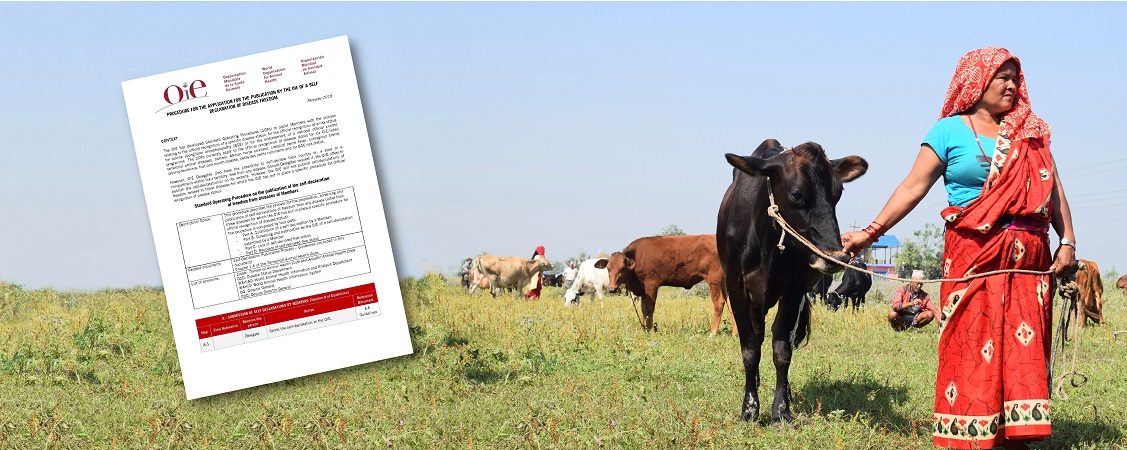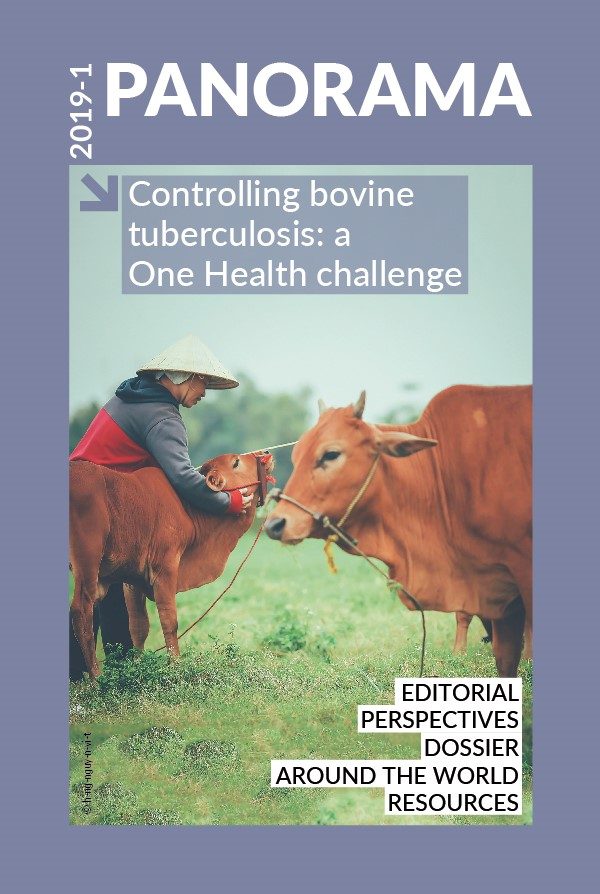Around the world Posted on 2019-05-21 16:47:01
OIE actions
OIE procedure for Member Country self-declaration of freedom from bovine tuberculosis
Keywords
Authors
Hernán Daza(1)* & Marija Popović(2)
(1) Chargé de mission, Status Department, World Organisation for Animal Health (OIE).
(2) Chargée de mission, Status Department, World Organisation for Animal Health (OIE).
* Corresponding author: self-declaration@oie.int
Publication of the self-declaration does not imply OIE official endorsement of the claim, but it acknowledges the country’s conformance to the relevant documented evidence of the Member’s compliance with the relevant international standards.
By joining the OIE, a Member Country undertakes to notify animal disease events that it detects on its territory. This notification reflects how well a country fulfils its obligation of transparency and enables the progress of its disease control programmes, including its ability to maintain its disease-free status, to be monitored [1].
When a Member Country declares itself or a zone or compartment free from an OIE listed disease [2] or another animal disease,(1) OIE standards provide for the Member to inform the OIE of this achievement by submitting the self-declaration accompanied by documented evidence of compliance with the provisions of the Terrestrial Animal Health Code (Terrestrial Code) or the Aquatic Animal Health Code (Aquatic Code). At the Member’s request, the OIE may then publish the self‑declaration on its website, thereby enabling the Member to enhance the visibility of its animal health situation. The submitted documents should follow the Standard Operating Procedure for publication of self-declarations, a procedure that includes a technical screening based on the information available in WAHIS and on the relevant requirements of the OIE Codes.
OIE Member Countries interested in making self-declarations of country or zone freedom from infection with Mycobacterium tuberculosis complex in bovids are invited to review the OIE provisions in Article 8.11.4. of the Terrestrial Code. According to these requirements, Members have to provide evidence of the following: the disease is notifiable, regulatory measures have been implemented for early detection of the infection, a surveillance programme based on regular testing of all herds in the country or zone has been in place for the required period, and a surveillance programme is in place to detect the infection through ante- and post-mortem inspections of bovids. Additionally, and according to its disease situation, a country or zone may be considered historically free from infection with M. tuberculosis complex in specified animal categories when the requirements of point 1 a) of Article 1.4.6. have been met for the relevant animal categories.
________________________________________
(1) The OIE does not publish self-declarations for diseases that are included in the OIE official recognition procedures, namely: bovine spongiform encephalopathy (BSE), foot and mouth disease (FMD), contagious bovine pleuropneumonia (CBPP), African horse sickness (AHS), peste des petits ruminants (PPR) and classical swine fever (CSF)
http://dx.doi.org/10.20506/bull.2019.1.2923
For more information on the publication of self-declarations on the OIE website,
please contact the OIE at: self-declaration@oie.int
References
- World Organisation for Animal Health (OIE) (2017). – Notification of animal disease information to the OIE. Bulletin, 2017 (2), 4–12.
- World Organisation for Animal Health (OIE) (2018). – Chapter 1.6. Procedures for self-declaration and for official recognition by the OIE. In Terrestrial Animal Health Code. 27th Edition.












